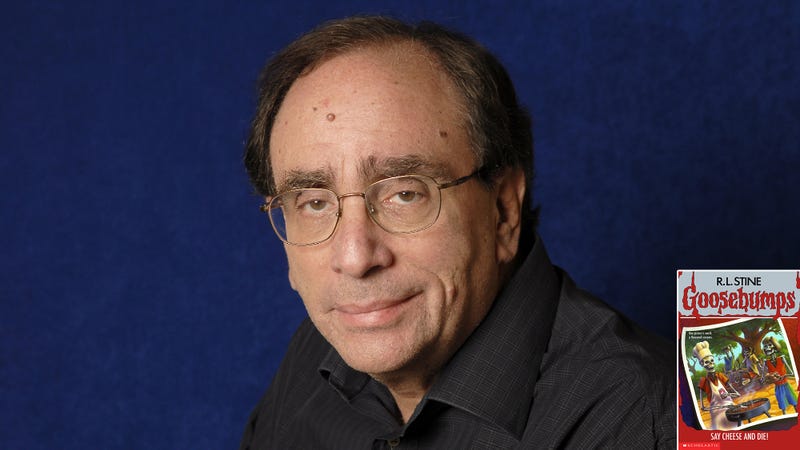MAY 6, 2019
What is most obvious is also often most concealed. Much of what we think we know has depths never ventured to because we mistake the surface for the bottom. Such is the case, especially, with human potential.
There are two major theories of how history is shaped, the distinction between them being the degree to which individual humans have any say in it. The first is the deterministic one, arguing that everything that has ever been is a product of a long chain of causes and effects, one leading to the next, without any gaps— and it says that it’s not individuals that shape history but randomness, which particular individuals have no control over, creating the conditions for them to rise to challenges and for things to happen at exactly the right place at exactly the right time. The second theory takes the free-will stance, suggesting that if it weren’t for certain figures like, say, Alexander the Great or Charles Darwin and their determination, with or without the supporting conditions, the world would be different.
The truth, as is often the case, likely lies in some nuanced paradox that sits between these theories. Thomas Carlyle, a 19th-century polymath, made his case for the latter with his famous work On Heroes, Hero-Worship, and The Heroic in History, coining what is known as The Great Man theory. To study history, according to Carlyle, is essentially to read the biographies of the big names that we hear again and again. The novelist Leo Tolstoy, of course, argued otherwise, using War and Peace to illustrate that it’s not the big names that change things but many small ones we never hear of. The historian Will Durant, too, argued otherwise, favoring a version of the former theory and the role of situations rather than any particular persons.
In each version, however, the question that boils to the surface is this: To what degree can individual humans alter the course of history? And more interestingly, the implication of this question — at least as framed by Carlyle and those favoring the choice of free-will — then, becomes: Human greatness is something that is measured by size and impact and influence.
Now, this idea of greatness is so banal on the surface that even talking about it feels hollow. It’s a definition we have all internalized, and while we may have our own subjective lens through which we conceptualize it, for the most part, all of our own definitions are an extension of this cultural definition that partly stems from this dilemma. Greatness is action. Greatness is visibility. Greatness is more. Greatness is legacy. Everything that augments our image in the eyes of others can be called great. And if we stop here, then maybe what is seemingly obvious remains obvious: The word “greatness” has a very particular definition, and when enough conditions meet it, we can feel good about using it. But what if we dig a layer deeper, to something less concrete but, perhaps, a little more sincere?
Remains of the Day is a novel by Kazuo Ishiguro. It’s about a butler named Stevens, and Stevens, after years of unwavering service at an old English country house sets off on a road trip to see an old colleague. Much of the book is narrated from his own point-of-view, jumping between scenes of present day and scenes conjured out of memories and flashbacks.
There are many themes and threads running through the chapters, but one of the core ones concern work and dignity. In particular, Stevens spends a good portion of the narration attempting to figure out what it means to be a great butler. This question, of course, begins innocently enough but then evolves into such an unraveling of his identity that the distance between where he started and where he ends leaves behind only more questions. Nonetheless, early on, there is a definition of greatness he gives, as he surveys the countryside of 20th-century England, wondering what makes it so different, that captures an essence that translates beyond the grip of nature:
“And yet what precisely is this ‘greatness’? Just where, or in what, does it lie? I am quite aware it would take a far wiser head than mine to answer such a question, but it I were forced to hazard a guess, I would say that it is the very lack of obvious drama and spectacle that sets the beauty of our land apart. What is pertinent is the calmness of that beauty, its sense of restraint. It is as though the land knows of its own beauty, of its own greatness, and feels no need to shout it.”
History, in a sense, is a drama and a spectacle. When we read about it in books, it may be discussed as a series of interconnected facts, but in actuality, given the various complexities that arise when documenting something like the past — such as: the very subjective perspective of the writers, the limitations of existing knowledge, the exaggeration of cause and effect, etc. — what we end up with is more a story than a science. And in this story, there are characters, good and bad, big and small, who do things. And if these characters happen to be the main ones, we measure their greatness according to the definition handed down to us.
All of this changes, however, if we make a simple switch: If instead of thinking of greatness as a definition, we were to think of it — first and foremost — as a feeling we experience when we sense something. And if we stay with this switch, the ability to evoke this feeling in others would be the truest and purest measure of greatness. Rather than using history, or legacy, or praise, or external validation as measuring sticks — all things that can be manipulated with different forms of excess — we did the exact opposite: measure greatness not by what is present but by what is absent and what that absence says about everything that remains when the excess is stripped away.
One thing that becomes very clear to me any time I spend a sustained amount of time in nature, and around animals, is how bad humans are as collective designers. If you walk around in a relatively untouched forest or jungle, actually looking at the patterns surrounding you, comparing them to, say, the average downtown city, it’s hard not to be moved — it’s like everything just fits, a puzzle that solves itself in recursive loop, where your attention isn’t forced but quietly invited. Evolution has slowly stripped away the inessential, leaving only what is necessary. And what is necessary is, of course, skilled, because it’s survived the trials and tribulations of time and competition, but that skill isn’t any more visible than it needs to be — and that, as Stevens noted, is exactly why its visibility is so potent to our senses.
The same can be said about people: Those who are truly great don’t fit definitions and categorizations of what it means to be great; rather, they are great by virtue of the feelings they evoke in other people. They are skilled, and they know who they are, and what they are capable of, and that can be picked up in all of the unconscious signals that the human brain uses to create our mental and emotional impression of the world at any moment. And, paradoxically, the less they do, the less effort they exert into showing what they know, the more their base competence shines through. And perhaps even more paradoxically, all of this eventually molds those external definitions and categorizations of what it means to be great as a byproduct.
When we find ourselves around people like this, we generally have a hard time pinpointing exactly what it is that makes them different. We sense that something is indeed different because the emotions they evoke in us tell us so but rarely are we able to fully verbalize what exactly that “something” is. All we are left with is an intuition that there is more here — in this space in front of us — than is visible to the naked eye.
History can make people great, but most people are great in spite of history. They are great not because of what they are able to outwardly project about themselves, but more so, they are great because they don’t need to project anything at all. They show nothing more than what is. And with that, their presence and their shadow sing louder than the words they speak.





 Literature was not promulgated by a pale and emasculated critical priesthood singing their litanies in empty churches — nor is it a game for the cloistered elect, the tin-horn mendicants of low-calorie despair.
Literature was not promulgated by a pale and emasculated critical priesthood singing their litanies in empty churches — nor is it a game for the cloistered elect, the tin-horn mendicants of low-calorie despair.



